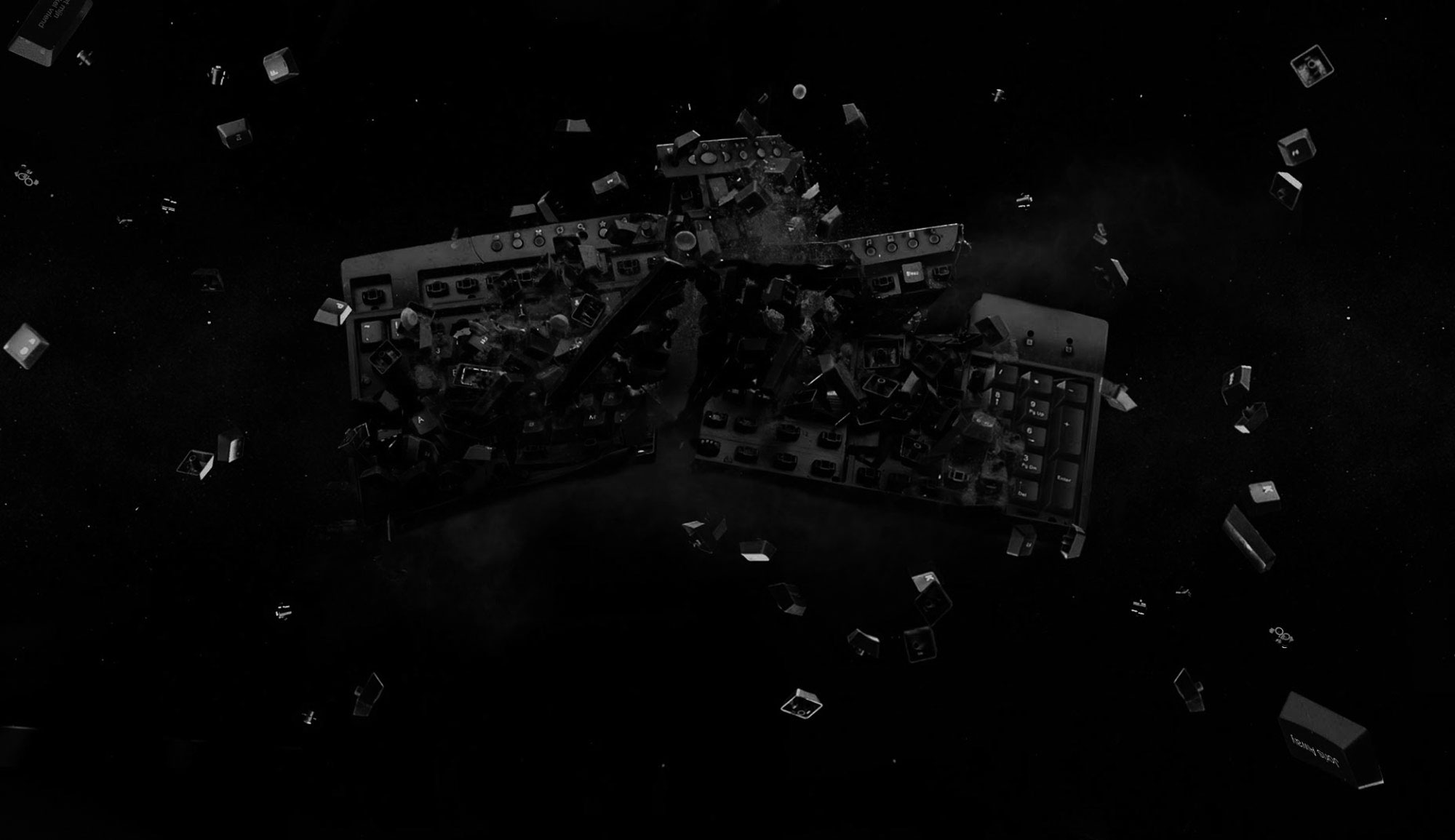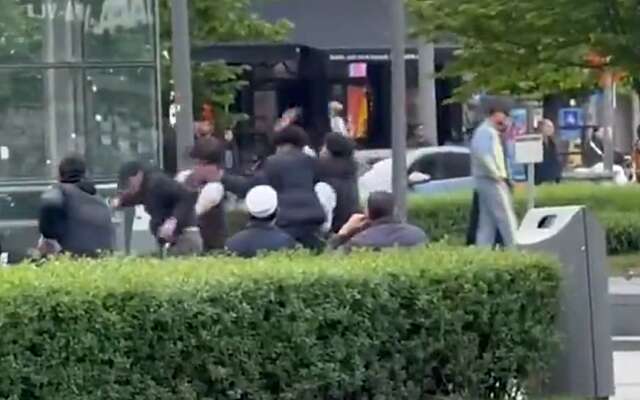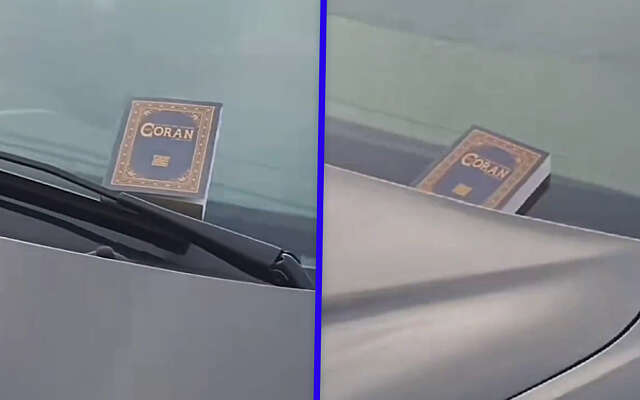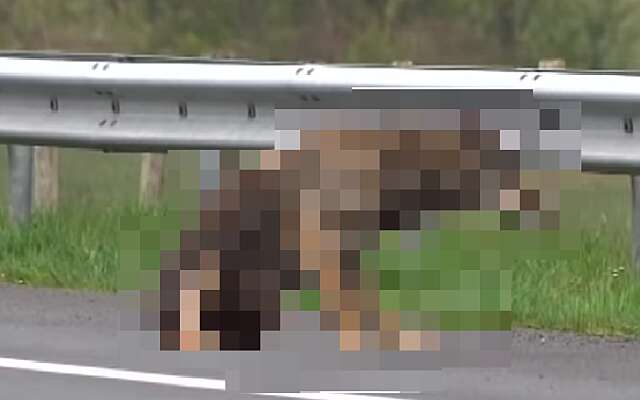New York Times radeloos over nazi-symbolen gedragen door talloze Oekraïense soldaten
En dan nu: journalistieke gymnastiek
Zit natuurlijk als volgt. Het Journaal komt al sinds 1945 niet verder dan "Het fascisme rukt op". Maar dan ontstaat er ineens een oorlog waar De Goeden toch wel heel veel, ja, nazis in de gelederen hebben. En dan werd het openlijk neo-nazistische Azov-regiment ook nog eens met een bepaald unheimliche officiële video met allemaal brandende symbolen enz., in de formele Armed Forces of Ukraine gevouwen. Wat doe je dan, als internationale #1 kwaliteitskrant? Inderdaad, je trekt 'experts' die voorheen niets anders deden dan achter elke boom een concentratiekamp zien, mee in je spagaat met als subkop: "Troops’ use of patches bearing Nazi emblems risks fueling Russian propaganda (...)", lol.
De symbolen betreffen voornamelijk de 3rd SS Panzer Division Totenkopf, Schwarze Sonne en variaties daarop. Komt de NYT-alinea van het jaar:
"The patch in the photograph sets the Totenkopf atop a Ukrainian flag with a small No. 6 below. That patch is the official merchandise of Death in June, a British neo-folk band that the Southern Poverty Law Center has said produces “hate speech” that “exploits themes and images of fascism and Nazism.” The Anti-Defamation League considers the Totenkopf “a common hate symbol.” But Jake Hyman, a spokesman for the group, said it was impossible to “make an inference about the wearer or the Ukrainian Army” based on the patch. “The image, while offensive, is that of a musical band,” Mr. Hyman said."**
Ja, Anti-Defimation Leauge, maak het nou.
Maar, vooruit. Nog eentje dan. "In November, during a meeting with Times reporters near the frontline, a Ukrainian press officer wore a Totenkopf variation made by a company called R31CH (pronounced "Reich"). He said he did not believe the patch was affiliated with tje Nazis. A second press officer present said other journalist had asked soldiers to remove the patch before taking photographs." Strike a pose.
Ja duidelijk een PvdA-roos
Gebeurt de beste!
NYT: 'Elon Musk houdt zoveel van VvMU omdat hij in Apartheid Zuid-Afrika opgroeide'
Bevreemdend weer, dat een interessant achtergrondverhaal zo krampachtig geframed moet worden
Ja, dit krijg je dus als je op voorhand weet wat je wilt schrijven en wat de geur en kleur van het artikel moet zijn, maar de werkelijkheid niet meewerkt. Het ging natuurlijk in het bovenstaande tweetje meteen al mis. "He sees his takeover of Twitter as a free speech win but in his youth did not suffer the effects of misinformation," wat staat hier in vredesnaam? We zoeken het op.
Het beoogde doel van het artikel was overduidelijk: koppel Elons voorliefde voor vrijheid van meningsuiting aan een (impliciet) racistische veronachtzaming voor het lot en leed van niet-blanke mensen. Nou, dat is dus nadrukkelijk niet gelukt, maar in de kop en tweets wordt het alsnog heel actief gesuggereerd. In de tekst zelf trouwens ook, ondanks dat de implicatie en daadwerkelijke bevindingen elkaar tegenspreken.
Het artikel opent met "But Mr. Musk (...) has not talked much in public about a significant swath of his past: How growing up as a white person under the racist apartheid system in South Africa may have shaped him. “It’s telling — white kids were insulated from the harsh reality of it,” said Terence Beney, who is white and graduated with Mr. Musk from Pretoria Boys High School in 1988."
Echter, na al die suggestie leren we in hetzelfde artikel het volgende:
- Elons vader was lid en gekozen plaatselijk politicus van de anti-apartheids Progressieve Partij.
- Elon verliet het land op zijn 17e o.a. omdat "he did not want to partake in South Africa’s mandatory military service because it would have forced him to participate in the apartheid regime."
- Klasgenoten beschreven hem als een "loner with no close friends", maar "Black schoolmates recall that he spent time with Black friends."
- Elon verdedigde ooit een zwarte student tegen een racistische bejegening, en werd daarvoor gepest. "One time at lunch, a white student used an anti-Black slur, and Mr. Musk chided the student, but then got bullied for doing so."
- Nadat bovengenoemde student overleed in een auto-ongeluk, was Elon een van de weinige blanken op zijn begrafenis in een agrarisch dorpje. "It was unheard of during that time," aldus de neef van die student.
- Ondanks dat hij niet het onderwerp van racistisch beleid was, was hij ook niet "insulated", zoals in de opening gesuggereerd wordt. Elons vader zei dat Elon en zijn broer en zus "would ask him about the laws prohibiting Black people from patronizing restaurants, movie theaters and beaches. They had to make calculations when they were going out with nonwhite friends about what they could safely do. “As far as being sheltered from it, that’s nonsense. They were confronted by it every day.”
- Elon was geen sympathisant van apartheid. "Elon, his brother and sister were aware from a young age that there was something wrong with the apartheid system. (...) “They didn’t like it.”"
Nou, blijft weinig overeind van al die ijverige suggestie.
Dan is er onderstaand nog de claim van een van de twee auteurs dat het Zuid-Afrikaanse apartheidssysteem bestond uit "unchecked speech". Maar dat is natuurlijk gewoon nadrukkelijk onjuist. "Speech was extremely checked — even white South Africans were subjected to a semi-authoritarian system to help uphold the larger white supremacist system."




